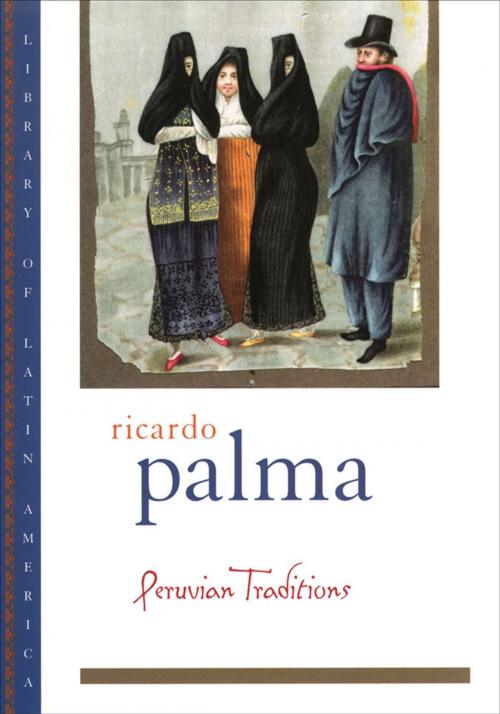| Author: | Ricardo Palma | ISBN: | 9780199882779 |
| Publisher: | Oxford University Press | Publication: | May 6, 2004 |
| Imprint: | Oxford University Press | Language: | English |
| Author: | Ricardo Palma |
| ISBN: | 9780199882779 |
| Publisher: | Oxford University Press |
| Publication: | May 6, 2004 |
| Imprint: | Oxford University Press |
| Language: | English |
Peruvian author Ricardo Palma (1838-1919) was one of the most popular and imitated writers in Latin America during the late nineteenth and early twentieth centuries. As head of the National Library in Lima, Palma had access to a rich source of historical books and manuscripts. His historical miscellanies, which he called "traditions," are witty anecdotes about conquerors, viceroys, corrupt and lovelorn friars, tragic loves and notorious characters. Humor, irony and word play characterize his collection of over five hundred traditions written between 1872 and 1906, whether describing violent deeds or amorous misadventures. Unlike many of his contemporaries in the second half of the nineteenth century, Palma did not write transparent didactic fictions and defend elite cultural forms. Rather, he reveled in ironic approaches to written sources, political authorities and church institutions as well as popular speech and knowledge. Both fiction and history, Palma's delightful Peruvian Traditions represents a hybrid literary form that constructs historical memory distinct from the dominant literary trends of the time.
Peruvian author Ricardo Palma (1838-1919) was one of the most popular and imitated writers in Latin America during the late nineteenth and early twentieth centuries. As head of the National Library in Lima, Palma had access to a rich source of historical books and manuscripts. His historical miscellanies, which he called "traditions," are witty anecdotes about conquerors, viceroys, corrupt and lovelorn friars, tragic loves and notorious characters. Humor, irony and word play characterize his collection of over five hundred traditions written between 1872 and 1906, whether describing violent deeds or amorous misadventures. Unlike many of his contemporaries in the second half of the nineteenth century, Palma did not write transparent didactic fictions and defend elite cultural forms. Rather, he reveled in ironic approaches to written sources, political authorities and church institutions as well as popular speech and knowledge. Both fiction and history, Palma's delightful Peruvian Traditions represents a hybrid literary form that constructs historical memory distinct from the dominant literary trends of the time.















